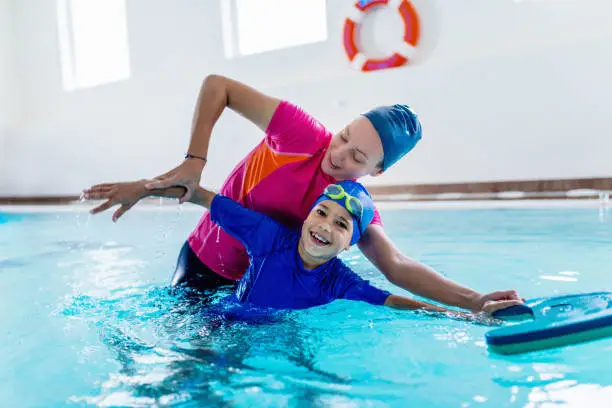
For many modern parents, the search for “newborn swim” classes starts soon after birth, with an increasing awareness of the cognitive, physical, and emotional benefits swimming offers even to the youngest infants. But as swimming lessons grow in popularity, so does the need for choosing the right swim school that aligns with a newborn’s unique developmental needs.
If you're a new parent exploring options, you might ask: What makes a newborn swim program truly effective and safe? And more importantly, what should I look for in a swim school in Singapore before enrolling my baby? Let’s dive into what you need to know.
Why Consider Newborn Swim Lessons?
Starting swimming lessons at an early age — even as early as 2 months — can yield numerous developmental advantages:
- Motor skills development: The gentle resistance of water helps newborns strengthen their muscles and improve coordination.
- Water familiarity: Early exposure builds a comfort level with water that reduces future fear or anxiety.
- Parent-child bonding: Swimming is often a shared experience between caregivers and babies, reinforcing trust and emotional connection.
- Cognitive growth: Studies have shown that babies exposed to structured aquatic play develop better balance and visual-motor skills.
In Singapore, where access to clean, well-maintained indoor pools is readily available, newborn swim classes have seen an impressive rise in demand. But not all programs are equal — choosing the right environment and instructors is critical for your baby's comfort and safety.
Key Features of a Reliable Newborn Swim School
When evaluating swim schools that offer newborn swim lessons, there are several essential criteria to consider:
1. Age-Appropriate Curriculum
A reputable swim school should provide tailored classes based on age milestones. For instance, babies aged 2 to 6 months require very different activities compared to those closer to 12 months. Look for schools that design their classes around developmental phases, including breath control, floating techniques, and water orientation games.
2. Qualified Infant Instructors
Teaching newborns to swim requires far more than standard swim certification. Instructors should be trained in infant-specific methods and certified in first aid and infant CPR. Equally important is their ability to communicate with parents, guide gentle interaction, and recognize signs of discomfort or overstimulation in babies.
3. Parent Involvement
One defining feature of newborn swim classes is the active participation of a parent or caregiver. The right swim school will ensure that sessions promote bonding, emotional support, and gradual water adaptation — never forceful or overwhelming techniques.
4. Pool Safety & Hygiene
Given a newborn’s sensitive immune system, water quality is non-negotiable. Choose schools that maintain indoor, temperature-controlled pools with stringent hygiene protocols. Facilities should also include infant-friendly changing rooms, feeding areas, and a calm ambiance.
What Singapore Offers: A Hub for Infant Swimming
Singapore’s swim education landscape is highly evolved, offering a variety of programs from neighborhood pools to boutique swim academies. What sets the top swim schools apart is their understanding of early childhood development and their commitment to safe, enjoyable experiences.
You’ll find schools that:
- Specialize exclusively in early childhood aquatic education
- Offer tiered programs for infants, toddlers, and older children.
- Host indoor classes in climate-controlled pools perfect for delicate newborns.
- Provide customized progress tracking for each child.
Tips for Parents Before Enrolling
- Visit the Facility First: Take a tour of the center. Look at cleanliness, safety measures, and whether staff are friendly and trained.
- Ask About Class Size: Small group sizes (or even one-on-one sessions) are preferable for infants.
- Talk to Instructors: Ask about their background, infant-specific training, and approach to working with newborns.
- Watch a Class if Possible: Observing a session can give you insight into the overall vibe and the engagement level of babies and parents.
- Prepare Your Baby: Start by familiarizing your newborn with warm baths and gentle splashing to help ease the transition into swimming pools.
Conclusion
Introducing your baby to the water through a dedicated newborn swim program can be one of the most rewarding decisions for both of you. In Singapore, where high-quality facilities and trained instructors are increasingly accessible, parents have ample options — but selecting the right school requires care.By focusing on safety, emotional nurturing, and developmental appropriateness, swim schools can create positive, lifelong associations with water. Whether you're aiming to build your baby’s confidence, support physical milestones, or simply enjoy some splash time together, early swim lessons are a meaningful place to begin.